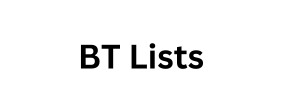Website loading speed is crucial for providing a good user experience and improving search engine rankings. Here are some best practices to help you optimize your website’s loading speed: Minimize HTTP Requests: Reduce the number of HTTP requests by combining multiple CSS and JavaScript files into one. This reduces the round trips required to fetch resources. Enable Caching: Leverage browser caching by setting appropriate caching headers for static resources like images, CSS, and JavaScript files. This allows returning visitors to load your site faster by storing files locally. Optimize Images: Compress and optimize images without sacrificing quality.
Use appropriate image formats
Minify CSS, JavaScript, and HTML: Remove unnecessary characters like white spaces, comments, and line breaks from your code to reduce file sizes. This reduces the time required to download and parse these files. Use Content Delivery Networks (CDNs): Distribute your static files across multiple servers located in different geographic regions. This helps deliver content faster to Photo Background Removing users by serving them from the nearest server. Reduce Server Response Time: Optimize your server’s performance, database queries, and code to minimize the time it takes to generate a response. Use caching mechanisms like opcode or database query caching to speed up server-side processing.
Enable GZIP Compression:
This significantly reduces the amount of data transferred and improves loading speed. Eliminate Render-Blocking JavaScript and CSS: Move JavaScript and CSS that block rendering to the bottom of the HTML file or use the “async” or “defer” attributes for non-critical scripts. This allows the browser to start rendering the page before all resources are loaded. Optimize Above-the-Fold Content: Prioritize loading above-the-fold content first to make BT Lists the page usable quickly. Load critical CSS inline and defer the loading of non-critical CSS and JavaScript. Monitor and Optimize Third-Party Scripts: Third-party scripts, such as analytics, social media widgets, or advertising tags, can significantly impact page load times.




